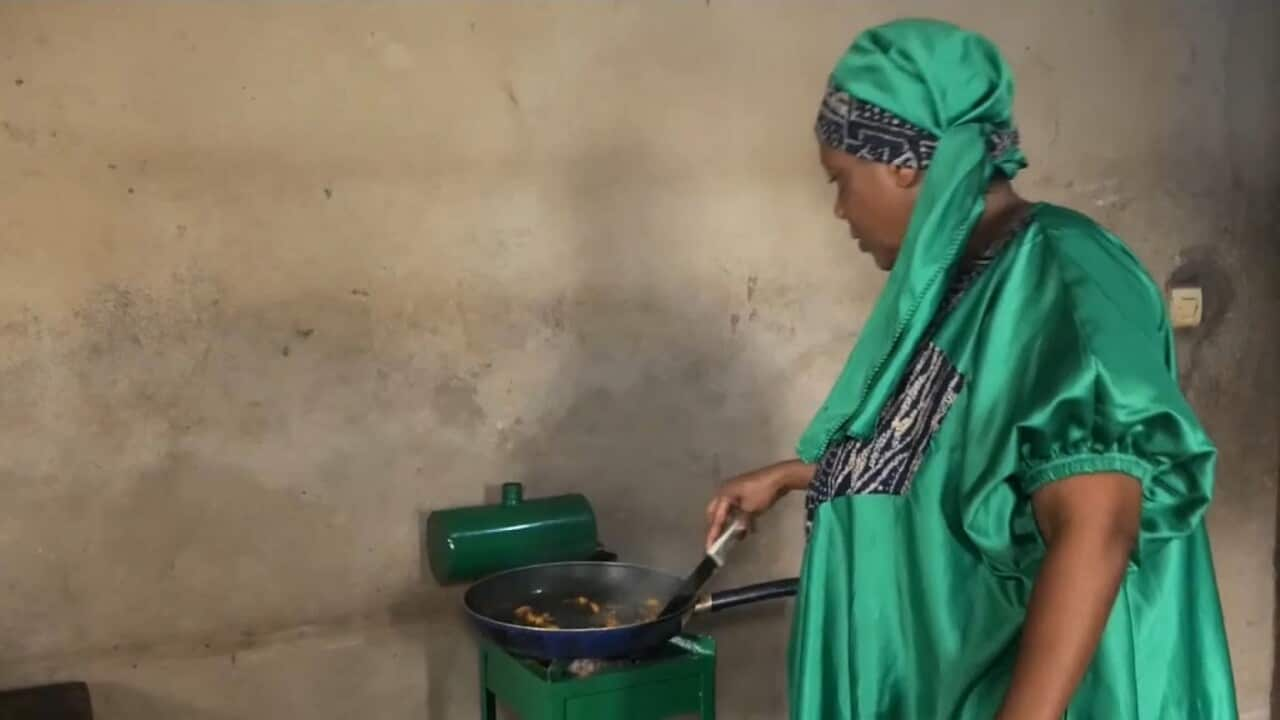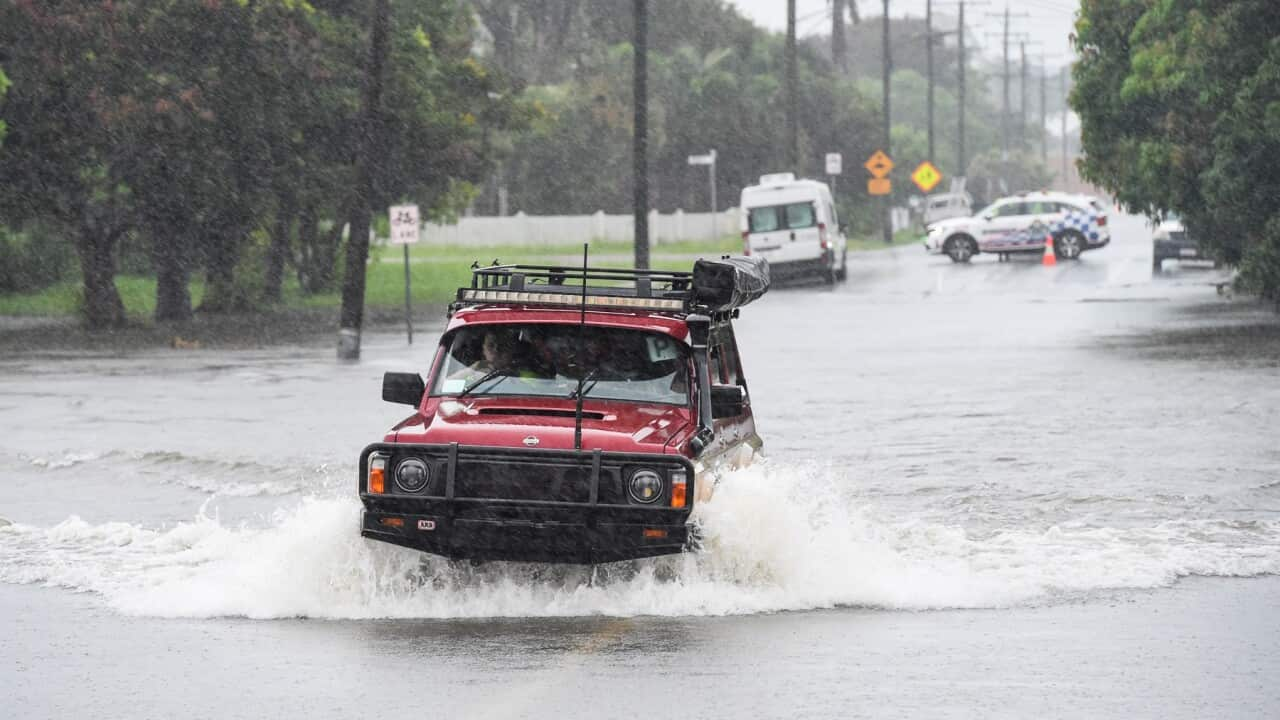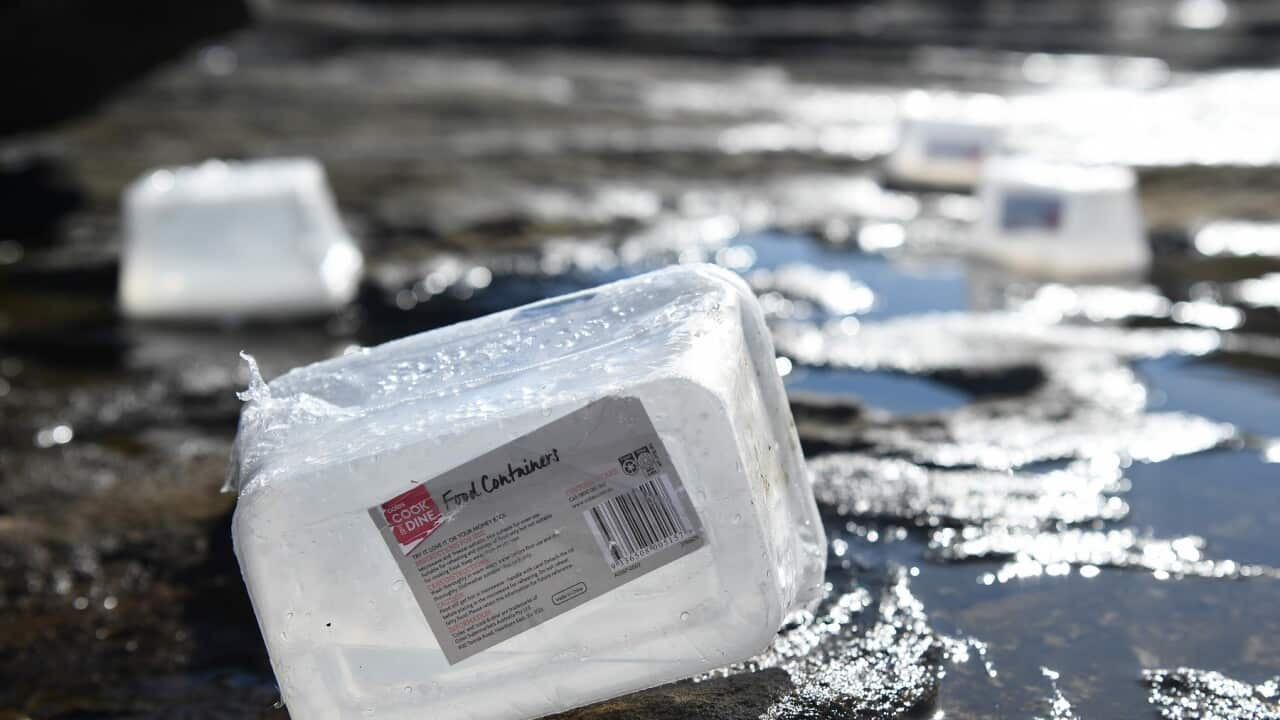TRANSCRIPT
For several months now, Suzanne Noubissie, a housewife in Douala, Cameroon's economic capital, has been swapping her coal-burning stove for one that uses a recycled oil.
The device, designed by a Cameroonian engineer, is powered by waste vehicle oil and solar energy.
Ms Noubissie says it's very economical.
“I've got fuel for less. You can get it at any price. I'm really satisfied, and the cooking is really fast. We women like speed and efficiency in the kitchen.”
The idea to create this rechargeable cooking tool that uses used oil came from Eric Tankeu, an energy engineer living in Douala.
In 2022, his mechanic explained the difficulties he faced in disposing of used oils.
After some research, Mr Tankeu discovered that this oil could be used as fuel.
He then spent a year developing a formula for recycling the oil, and designing a stove that can use it in a safe kitchen environment.
"Many women have lung problems linked to the inhalation of carbon monoxide and dioxide, the gases released by burning wood, and this is a real public health problem, not just in Cameroon but in practically every African region where firewood is used. There was also the problem of effectively combating soil pollution, because these oils are dumped everywhere, nobody wants them, nobody recycles them, and only a small quantity of these oils are generally taken back and recycled, then resold and put back into the reuse circuit."
While he's keen to keep the process by which he transforms used oil into a fuel a secret, Mt Tankeu says he processes around five tonnes of oil every month.
The stove he manufactured is sold for around US$109.
Mr Tankeu says 2 litres of oil, costing US$2.35, can achieve the same cooking time as a 6 kilogram domestic gas bottle costing US$10.
As well as protecting the environment, recycling used oil also brings economic benefits, says sustainable development expert Guy Merlin Tindjou Ouandie.
He holds a Master’s degree in Earth Sciences from the University of Dschang-Cameroon and a Professional Masters in Environment and Management of Natural Resources from the Institute Pan-Africa for Development.
"The opinion we can have on used oil recycling is that it's a good thing that it's recycled, because used oils are hazardous liquid waste, which is not good for humans and living beings. So, it's very important that this liquid waste doesn't end up in nature, and that it's collected by experts, specialists and professionals in the field, so that it can be recycled and treated before being put back on the market. It's also a very good thing that these oils are recycled, as this contributes to the circular economy, which in turn creates jobs."
For housewives like Ms Noubissie, cooking with less smoke than the charcoal stove she was used to is a welcome change, allowing her to prepare food in a safer and cleaner way.













